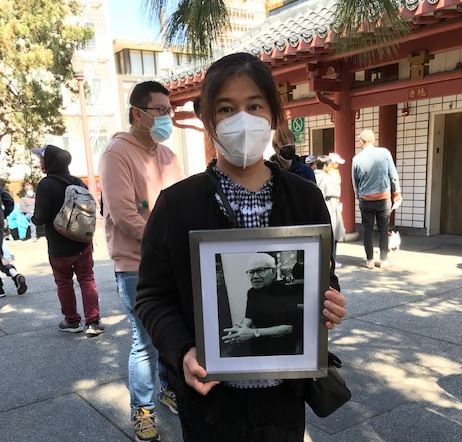By Quyen Dinh, Executive Director, Southeast Asia Resource Action
Center
Asian Americans have faced a long history of discriminatory systemic
policies and practices that relentlessly target us as “other.” Most
recently, racist Covid-19 rhetoric has reminded us that very little
has changed since our families first came to America.
The heartbreaking images from the past year of our elders being
savagely attacked merely for being Asian brought the trauma home for
many of us in the Asian American community. During 2020, anti-Asian
hate incidents increased 150%, and the first six months of 2021 have
only added to our fear and distress.
We just celebrated Immigrant Heritage Month. To add real
substance to this honorific, we must make sure that the elders who
embody that heritage—our living links to history—receive the care and
services to secure their physical safety, sustain their health, and
nurture their spiritual well-being.
Passing President Biden’s infrastructure legislation, which includes
funding for caregiving, is the best way to accomplish this goal with
the appropriate levels of skill and scale. Then, we need to ensure
that significant funds are allocated for communities of color,
including Southeast Asian Americans, who have long been underserved
when it comes to both physical and mental health.
As the executive director of the Southeast Asia Resource Action Center
(SEARAC), and as the daughter of Vietnamese refugees, my commitment to
this effort is both professional and personal. SEARAC was established
in 1979 to help with the resettlement of refugees from Vietnam, Laos, and
Cambodia.
Since then, we have undertaken myriad efforts to counter the
discriminatory practices we encountered as we added “American” to our
identity and to address the legacies of trauma and upheaval that
followed our elders to this country.
The American Jobs Plan proposed by President Biden is a critical first
step to building the infrastructure that our elders need to age with
dignity. It acknowledges that the care economy is a vital systemic
underpinning of a healthy society and makes funding available for
childcare and eldercare.
That is every bit as essential to our collective future as highways
and tunnels. The Biden Administration has also committed to remedy the
profound inequalities in service and access that plague underserved
communities like ours.
Diverse Elders Coalition assessments indicate that $450 million in
funding is required to support equitable access to programs and
services for older adults from racially and ethnically diverse,
American Indian and Alaska Native, and/or LGBT+ communities. This
includes a broad spectrum of programs to address food insecurity;
cultural competency training to help bridge the gap between care
providers and our community; cyber education to decrease the digital
divide; and a panoply of efforts to increase the mental health and quality
of life for our elders.
With the current wave of hate crimes against Asian American elders, my
community needs these services now more than ever. According to the
National Alliance on Mental Illness, we have the lowest help-seeking
rate of any racial/ethnic group, with only 23.3% of AAPI adults with a
mental illness receiving treatment in 2019. This gap reflects the
unequal distribution of treatment services sharply exposed to public
view by Covid-19. But it also may reflect the lack of culturally
relevant and integrated care required to encourage elders to seek help.
I recently spoke with one of the rare therapists who, over many years,
has forged successful treatment relationships with Southeast Asian
American elders. She emphasized that partnership rooted in trust is
the starting point for healing, but the cultural competencies she
needed to establish trust were never part of her training. A
strengthened investment of resources will allow more professionals to
receive the training and support they need to provide our elders with
the insight and level of comfort that can ease them through personal
trauma.
I believe the infrastructure bill, and the funding it can initiate,
will help our elders to live with dignity and grace. It is a dream and
a hope that Americans across all communities want for our grandparents
and parents. The solutions that emerge for our communities are ones
that will help all of us in America to think about how we care for
elders at large and shift the conversation around how we care for one
another.
*About the Author*
Quyen Dinh is Executive Director of the Southeast Asia Resource Action
Center (SEARAC). Originally formed in 1979, SEARAC was founded by a
group of American humanitarians as a direct response to the refugee
crises arising throughout Southeast Asia as a result of U.S. military
actions.
Today, SEARAC is a civil rights organization that represents the
largest refugee community ever resettled in America. Dinh was born to
Vietnamese refugees and identifies as a second-generation Vietnamese
American. She holds a Master of Public Policy degree from the UCLA
Luskin School of Public Affairs and a Bachelor of Arts degree in
English from the University of California, Berkeley.
AsAmNews has Asian America in its heart. We’re an all-volunteer effort of dedicated staff and interns. Check out our new Instagram account. Go to our Twitter feed and Facebook page for more content. Please consider interning, joining our staff, or submitting a story or making a contribution.


